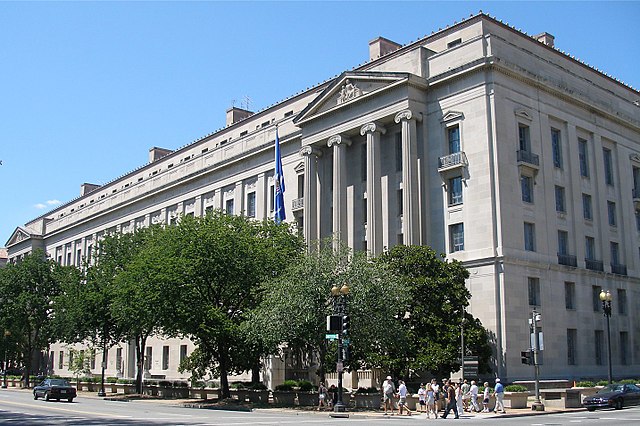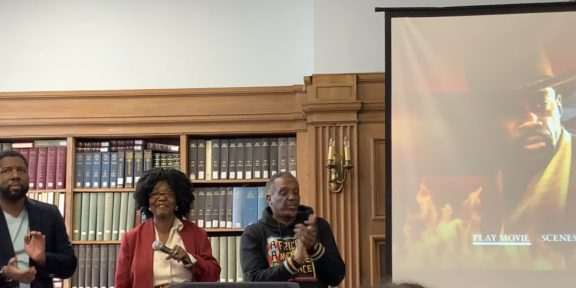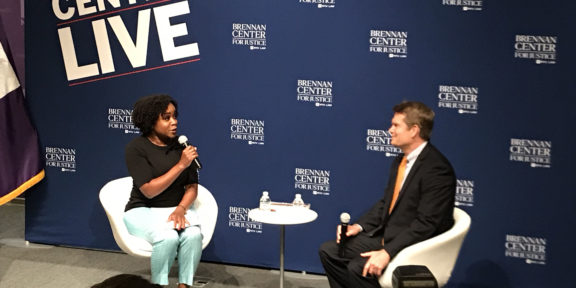By Breon Perry, Howard University News Service
On a Wednesday afternoon in late October, in a Kroger supermarket outside Louisville, a man pulled a gun from his waistband and fired a shot into the back of the head of an unarmed black man, killing him on the spot. Then he went outside, shot and killed a black woman in a similar fashion, and calmly walked away, local news media reported.
A bystander in the parking lot grabbed his own gun, took cover behind a car and asked the shooter what was going on. “Don’t shoot me. I won’t shoot you,” the shooter was reported to have replied. “Whites don’t shoot whites.”
Three days later, a heavily armed white man opened fire on worshippers at a synagogue in Pittsburgh. “All Jews must die,” he was reported to have screamed, as he killed 11 worshippers before police arrived, exchanged gunfire and took him away.
Four days later, a 46-year-old white man was named in a 44-count indictment and charged with violating federal hate crimes law for the shooting at the synagogue. A 51-year-old white man was charged with federal hate crimes violations for the Louisville shootings—two weeks and a day after the Pittsburgh indictments were announced.
Enough time passed between the Pittsburgh and Louisville charges for some to wonder whether federal law enforcement officials were paying sufficient attention to racial incidents.
The FBI’s annual hate crimes report, released two days before the Louisville indictments were made public, offered some evidence to the contrary.
It reported that hate crimes rose 17 percent in 2017, that nearly three of every five targeted the racial or ethnic identity of the victim, and that 2,013 of the 7,175 crimes reported were aimed at black persons.
“For at least the last 25 years, African Americans have been the most frequent victims of hate crimes, and with the flood of #LivingWhileBlack incidents that occurred this year, we have seen that hate crimes, hate speech and the general culture of intolerance and implicit bias are not exclusive to the extremist communities—they have become an inextricable hazard in the daily lives of Black and brown Americans,” the NAACP said in a statement on the report.
The time gap between the Pittsburgh and Louisville indictments may have occurred because of the customary deliberations among law enforcement officials on whether to prosecute the defendants under state or federal statutes.
The alleged shooter in the Louisville incident was arraigned 10 days after the incident on state charges of murder, criminal attempt to murder, and wanton endangerment.
“Prosecutors said Kentucky could not charge [him] with a hate crime because the state’s limited statute does not apply to murder, The Washington Post reported. “But the FBI may bring federal hate crime charges…”
A short time later, it did, saying in the indictment that the shooter “killed the man and the woman because of their ‘actual and perceived race and color’.”
The indictment of the alleged shooter in Pittsburgh said he had “made statements indicating his desire to ‘kill Jews ‘“ and then “intentionally obstructed, by force and threat of force, each victim…in the enjoyment of that victim’s free exercise of religious beliefs.”
Some civil rights organizations have voiced distrust of government reports regarding hate crimes, contending that such incidents have increased beyond what is reflected in government data.
“For the N.A.A.C.P., we began to see this during the presidential election in 2015,” the organization’s president, Derrick Johnson, told The New York Times.
“The level of tribalism that was being fueled by presidential candidates, the acceptance of intolerance that has been condoned by President Trump and many others across the country has simply emboldened individuals to be more open and notorious with their racial hatred.”
The Department of Justice hate crime reports is based on voluntary submissions from local and state agencies. In 2016, nearly 9 of every 10 of those agencies reported no hate crimes.
Deputy Attorney General Rod Rosenstein told a gathering of law enforcement officials in Washington that the problem was “a lack of awareness in how to report hate crimes rather than a lack of them,” POLITICO reported.
The annual FBI reports are the only ones that track hate crimes on an annual basis. The Southern Poverty Law Center, based in Montgomery, Alabama, also chronicles hate crimes regularly but does not issue yearly compilations.
Its statistics include individual claims, not just those reported to authorities, and center officials contend that their data is more complete because of that.










